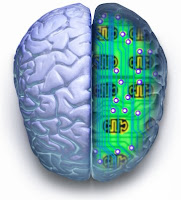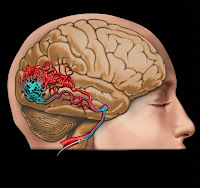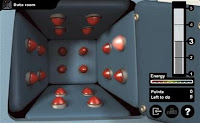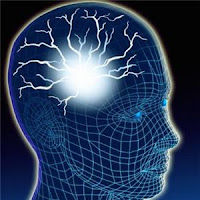 I’ve been forgetting a lot lately, making stupid mistakes at work, and bumbling like an idiot–basically running on half my cylinders. I attribute it to getting very little sleep since my daughter, Violet, was born on September 27th. I estimate that I’ve gotten only two or three good night’s sleep in that time. Interestingly, I fall asleep no problem, but wake up every hour or two whenever Violet and my wife wake up for baby’s feeding. Ugh…
I’ve been forgetting a lot lately, making stupid mistakes at work, and bumbling like an idiot–basically running on half my cylinders. I attribute it to getting very little sleep since my daughter, Violet, was born on September 27th. I estimate that I’ve gotten only two or three good night’s sleep in that time. Interestingly, I fall asleep no problem, but wake up every hour or two whenever Violet and my wife wake up for baby’s feeding. Ugh…
So when I caught the results of this latest study on sleep and memory, I guess I wasn’t surprised, as I’ve been experiencing exactly what they have found to a tee. Neuroscientists have found, in several distinct yet related experiments, that uninterrupted sleep is necessary for our processing of memories. Fragmented sleep, which appears to be a more common sleep disorder than insomnia, can actually suppress the birth of new brain cells in the hippocampus, where memory-making begins–enough to hinder learning weeks after sleep returns to normal.
What seems to be important here is not so much sleep duration, but quality of sleep, which is known as sleep intensity. Sleep intensity is important in how memories stick, and the stage of sleep that is most important for this process is “slow wave sleep” or deep sleep. This is the stage right before REM sleep, the stage where we dream. If we fail to enter deep sleep, our memories suffer.
But there’s great news: Nappers were not only found to have better memories, but they also had a greater ability to put together separately learned facts–a process called relational memory. English-speaking subjects were given lists of Chinese words spelled with two characters–such as sister, mother, maid–and memorized them. Then half took a nap, being monitored to be sure they didn’t move from slow-wave sleep into the REM stage.
 What the researchers found was that the nappers did much better at automatically learning connections in the words they’d memorized. They also were better able to learn about new words they hadn’t yet encountered by piecing together information from the first sets of words. The conclusions of the studies–uninterrupted sleep is necessary for memory and creativity in problem solving; and naps, even if the short cat-nap variety, are very efficient at providing the the deep sleep necessary to develop long-term memories. Fascinating!
What the researchers found was that the nappers did much better at automatically learning connections in the words they’d memorized. They also were better able to learn about new words they hadn’t yet encountered by piecing together information from the first sets of words. The conclusions of the studies–uninterrupted sleep is necessary for memory and creativity in problem solving; and naps, even if the short cat-nap variety, are very efficient at providing the the deep sleep necessary to develop long-term memories. Fascinating!
So, I’m hoping that I’ll soon be getting more sleep. Until that time comes, though, I’ll probably keep sending empty boxes to vendors, calling my assistant by a different name, and paying my phone bill with a check to my credit card company. But I won’t even try to memorize Chinese words without a nap.





















